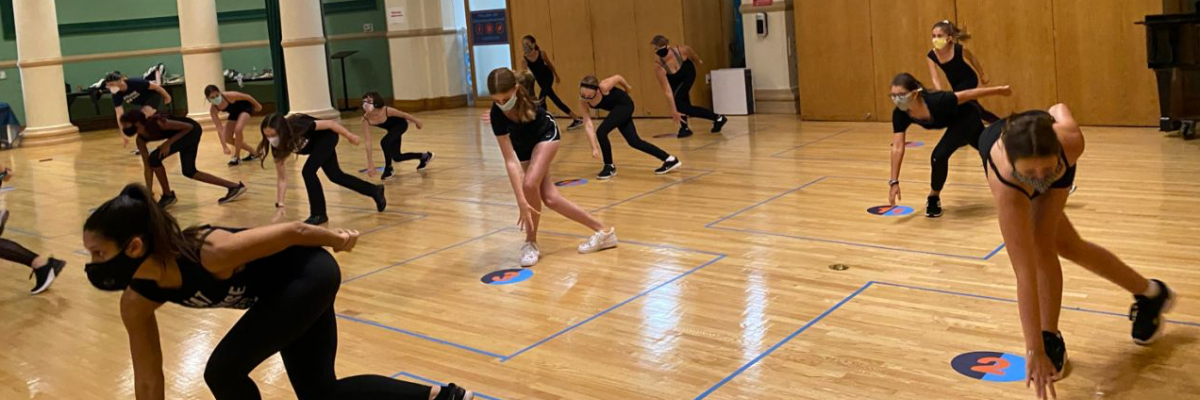
Looking to enroll in a theater program? The good news is you have hundreds of options. The bad news? Not all programs are the same — or even respected. Variations abound in terms of intensity, quality, professionalism, methodology and expertise.
So what’s an aspiring actor or supportive parent to do? The reality is that finding a program that’s “just right” requires some serious research. For starters, meet with instructors, sit in on a class, or see a production. Know if you’re looking for a program active in the “industry” or one that’s just for fun.
Sorry, but if you’re serious about performing, you can’t shortcut this process. But you can shortlist the search by only looking at theater programs that adhere to a list of standards and best practices.
Here are the five most important:
1) Multiple and Experienced Instructors.
Look for a community of teachers/directors who are passionate about their expertise. Start by browsing teacher bios on the program’s website. Do the teachers actually work there? Does the owner teach everything — or are multiple teachers on staff? If it’s the former, then what you are taught is professional credits. going to be very limited. You will only learn the style of an individual teacher. Same everything.
It’s important for a program to be filled with a broad team of experienced teachers who can guide you through different areas of interest. How can you stand out among thousands of aspiring actors if everyone in your program has the same style? Select a program with many different types of teachers with different styles, who will highlight your skills and help you develop new ones.
2) Community.
“There is nothing like a theater community”
Seek out a program that emphasizes Community. There is nothing like a theater community, which is fostered by the people who run the training program. If it’s done right, the people you meet in your theater community will be in your life forever. This community will cheer you on, hold you accountable, be truly happy for your success and will be there to pick you up when you fall.
This strong community of people are the ones down the road you will write and produce shows with, direct or cast you in something, even spend long nights talking about theater and singing songs with harmonies you learned 20 years ago. How can you find out about the program’s community? Speak to alumni or kids currently in the program. The true test: Make a random visit and go up to anyone and ask them to tell you about the community. Actors are honest.
3) Pre-Professional.
What’s the point of doing anything if you’re not going to give it your all? You want a program that is pre-professional, where the level of discipline prepares aspiring actors for professional auditions, as well as booking a job and how to work in a professional setting. Most programs that require an audition are pre-professional. The program most likely does not tolerate missing rehearsals, requires knowing your lines, harmonies, dance moves, blocking or where you stand in front of the camera, in advance. These programs encourage working outside of rehearsal time. A disciplined program is built for performers who want to enter the business professionally or are prepared to enter college conservatories.
4) Just For The Fun Of It.
A more relaxed approach in a program is great, too. Not everyone wants to be a professional in the world of performing. There are people who just want a boost of self-confidence, or who love to be on stage, or just like it as a hobby, but don’t want a career in it. All of these reasons are important and valid. Make sure you look for that vibe in the program you pick. A student might just want to learn a dance and not worry about perfect technique, or might not care about meeting an agent. Enjoy being around kids who also love performing as a hobby. There is nothing wrong with doing something just for the enjoyment of it. This is equally important in finding the right program.
5) Variety.
Acting, as covered in a previous blog, is now a multi-disciplined profession [J1]. You want to train at a theater program with a wide age-range and variety of instruction. That means multiple types of classes in dance, musical theater, acting, film, private coaching, workshops and more. You don’t want to have to run to 12 different programs to study each type of training. Keep it in-house so you can be in a place where teachers are talking about your training and giving input to each other about your progress. Know that your instructors are really investing in you.
Perfecting a variety of skills demonstrates passion and commitment — and, above all, directors and colleges want to see commitment. They like it when students stick with what they love. Loyalty, passion and commitment are qualities valued everywhere, so make sure you pick a program that will nurture your strengths but also give you the opportunity to try new things and improve your weaknesses.
A one-size-fits-all theater program does not exist. You need to find the best fit for you. Just make sure any program you settle on meets the above qualifications. If not, take a pass and move on to the next one.











